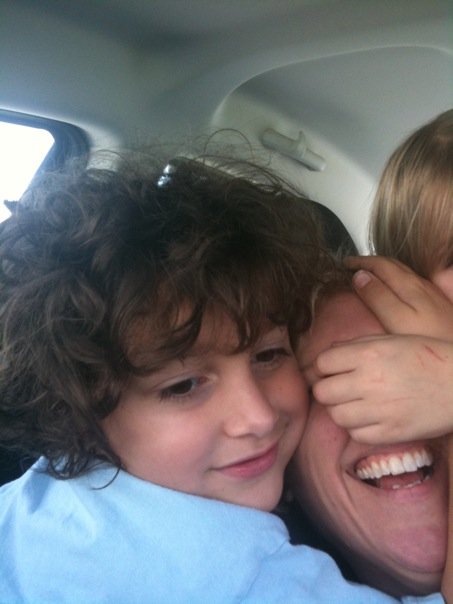My son was less than six years old when he asked, “If the baby is born in a hospital, does that mean you have to have sex in the hospital?”
That was the moment I realized that omissions in the “where babies come from” talk create tremendous confusion. Those little tidbits we delicately tiptoe over and around in an effort to spare awkwardness—they leave gaps of information which get filled in with imagination and assumptions—in other words, misinformation.
I promised myself I’d be direct and honest with my kids and adhere to a couple of rules about answering tough questions:
Answer when they ask. A lot of parents agonize about the right time to talk about sex, drugs, periods, or other wince-inducing topics. We want to let our children be innocent as long as possible. But if they’re seeking an answer and you don’t give one, they will find it somewhere else. And it’s probably not going to be very good. The right time is when they ask.
Check my own embarrassment at the door. If my kids see shame on my face, they’ll get a message that they’ve said something shameful. If I get uncomfortable or say, “You shouldn’t ask that,” I’m telling them that there’s something wrong with their curiosity. And if they associate a negative response to a delicate topic, they won’t ask again. So I try to answer with the same tone and expression I’d use about, say…how ocean tides work.
When my son asked, “Why do people who don’t want to have a baby still have sex?” I took a moment to come up with a simple, age-appropriate, but honest answer…“Because it feels good.”
“Oh.” he replied, matter-of-factly. And that was that.
It dawned on me that we rarely tell kids that it feels good. Most youngsters’ intro to sex is that it’s a sterile, functional, anatomical event. By the time we reveal the aspects of pleasure and emotion, they’re adolescents. They’ve probably seen, heard about, and maybe even experienced this for themselves, and we’ve already missed the opportunity to prepare them.
As my friend and colleague, who teaches consent to teens always says, “When you turn of legal driving age, your parents don’t throw you a set of keys, tell you where the car is parked and say, ‘Good luck, hope you don’t hurt yourself or someone else!’ And yet that’s very much how we deal with sex education.”
My lack of discomfort made it easy for my son to keep asking bold questions. When he was 12, I was thrown a challenge. On the car ride home from his visit with an important male figure in his life, he told me that, while that person was out of the room, he’d opened his laptop to play Minecraft. And what he saw was porn.
I made note of the fact that he remembered the specific URL, indicating he’d spent more than a beat looking at it. The extent of our conversation in the car was this:
“That must have been awkward for you.”
“Yeah.”
“I’m glad you’re comfortable enough to share that with me. Thanks.”
And then I wrote him a letter letting him know I was here if he had any follow up thoughts. And it was important that he know two things:
1. There is nothing wrong with your [male figure] watching porn. And if when you watched it, you felt excited…that’s totally normal, too. It’s a natural, human response and I never want you to feel shame about your sexuality.
2. What you saw was set up by producers, directors, and a whole film crew. It’s not how sex happens in real life. In a majority of those videos, women rarely speak and sex is often rough. That’s not how most women usually want to be treated. Talking, kissing, and gentle touch are a big part of a sexual relationship that are often missing from those scenes.
To be honest, I wish my kids had an aunt or uncle or family friend for those nitty-gritty conversations. But I didn’t have that option. I was mom, dad, and confidant all in one. I was the only one who was going to give them the practical suggestion of exploring masturbation to get to know their own bodies,
“Get a mirror out and see what everything looks like. You can’t teach a future partner how to use your equipment if you don’t know it yourself.”
Also, knowing what your anatomy looks like when it’s healthy will alert you quickly if there is ever something wrong.
I know these things make most of us squirm. But I believe one of the best things we can do to nurture a culture of consent is to talk about sex in a shame-free, honest way when kids are young, so they’ll be informed and more comfortable talking to each other when they’re ready.
In my next post…the really-real talk with my daughter.
~
See also: The Really Real Sex Talk I had when my Daughter found a Condom.












Read 2 comments and reply